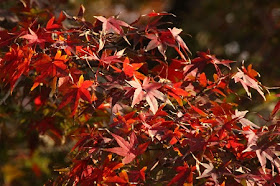I visited Inokashira Park Zoo to see biological impacts of Fukushima No.1 nuclear power plant accident. Though I have visited various places in Japan to see the health consequences of the accident, I have never found any effect against creatures in Japan.
Inokashira Park Zoo is located in a quiet and distinctive suburb of Tokyo. It exhibits a variety of Japanese species and contributes to the conservation and breeding of Japanese squirrels, mandarin ducks and Tokyo bitterlings. The park also comprises a pond, a botanical garden and Seibo Kitamura (Japanese sculptor) Museum. The park’s lush verdure offers a relaxing atmosphere for any visitors.
So I visited Inokashira Park Zoo to see effects of the accident against creatures which are grown up by Japanese food and water.
Fortunately, I could see them grown up safely and I couldn't find any impact of the accident. It seems that there is no problem for childbirth and child-rearing in Tokyo Japan.
Posted by Yoshitaka Kiriake from Japan on December 10, 2013.
東京都武蔵野市にある井の頭自然文化園では貴重な小動物を間近で見ることが出来る。生後間もないマーラやモルモットも見ることが出来た。紅葉も綺麗だ。
Japanese Squirrel
Inokashira Park Zoo
Google map
Red swamp crayfish
Little grebe
Freshwater minnow
Ayu sweetfish
Nipponocypris sieboldii
Domestic Goat
Common Raccoon
Patagonian Cavy
This baby Patagonian Cavy is 16 days old.
Eurasian Badger
Tsushima leopard cat
Leopard Cat
Raccoon dog
Red Fox
Sika Deer
Japanese Serow
Domestic Guinea Pig
This baby Domestic Guinea Pig is 16 days old.
Japanese giant flying squirrel
Cattle Egret
Mandarin Duck
Japanese Green Pigeon
Black-faced Ibis
Call Duck
Common Kestrel
Japanese White-eye
Ryukyu Flying Fox
Victoria Crowned Pigeon
Japanese Pheasant
Japanese foods are good and safe.
Because of stricter food safety law by Japanese government, we have no worry about foods.
Dango : skewered rice dumplings in a sweet soy glaze
Soba : Japanese buckwheat noodles
The maple leaves have turned a beautiful red.
The leaves are already turning yellow or red.
2 and a half years have passed since Fukushima Daiichi nuclear power plant accident. I have visited various places of Japan to see the health consequence of the accident.
Fortunately I have never found any impacts by the accident among Japanese creatures. As far as I know, nobody has health problem which is caused by the accident in Japan.
Our Prime Minister Abe assures that "the situation is under control" and "there will never be health problems." He also said that "Tokyo is 250 kilometers away from Fukushima, and the kind of danger that you imagine does not exist in Tokyo. Tokyo is a very safe city."
As PM Abe said, Tokyo is very far away from Fukushima, people in Tokyo have no concern about the nuclear power plant accident. People in Tokyo have already forgotten the accident, because they think radioactive materials cannot reach there.
We know there is no problem for child birth and child rearing in Tokyo. So people in Tokyo are living without any concern about the accident.
I continue to visit various places in Japan to see the effects of the accident, because I can meet various creatures which are more sensitive to radioactive materials from the environment. It is important to see their health for our safety.
Fortunately I have never found any impacts by the accident among Japanese creatures. As far as I know, nobody has health problem which is caused by the accident in Japan.
Our Prime Minister Abe assures that "the situation is under control" and "there will never be health problems." He also said that "Tokyo is 250 kilometers away from Fukushima, and the kind of danger that you imagine does not exist in Tokyo. Tokyo is a very safe city."
As PM Abe said, Tokyo is very far away from Fukushima, people in Tokyo have no concern about the nuclear power plant accident. People in Tokyo have already forgotten the accident, because they think radioactive materials cannot reach there.
We know there is no problem for child birth and child rearing in Tokyo. So people in Tokyo are living without any concern about the accident.
I continue to visit various places in Japan to see the effects of the accident, because I can meet various creatures which are more sensitive to radioactive materials from the environment. It is important to see their health for our safety.
公衆衛生ネットワーク
Public Health Network in
Japan




































0 件のコメント:
コメントを投稿